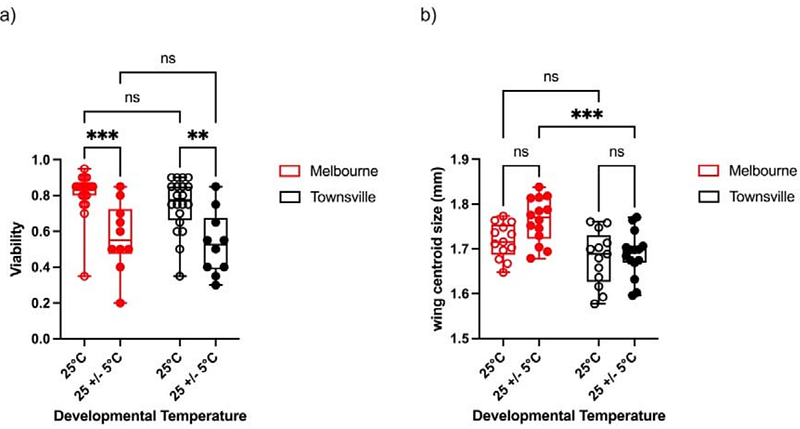Fluctuating temperatures exacerbate nutritional stress during development in Drosophila melanogaster

Fluctuating temperatures exacerbate nutritional stress during development in Drosophila melanogaster
Zanco, B.; Morimoto, J.; Cockerell, F.; Mirth, C. K.; Sgro, C. M.
AbstractRecent studies suggest that elevated temperatures interact with nutrition to exacerbate the negative effects of poor nutrition. Furthermore, populations adapted to distinct environments differ in their sensitivity to combined thermal and nutritional stress. However, most studies have tested these effects using constant temperatures, even though animals in the wild experience daily and seasonal thermal fluctuations. Here, we used two locally-adapted populations of D. melanogaster from the east coast of Australia (a tropical and a temperate population) to ask whether temperature fluctuations interact with nutrition in the same manner as constant temperature conditions to shape life history traits, and how this differs across populations. We found that fluctuating temperatures exacerbate the negative effects of a poor diet when compared to constant temperatures. Moreover, the negative effects of nutritional stress were significantly greater in the tropical population. In contrast, we found that the temperate population was able to utilize nutrition in unique ways to maintain optimal viability under warmer temperatures. Our findings reveal the ways in which temperature and nutrition interact to impact key life history traits in geographically distinct populations, while also highlighting the importance of using temperature assays representative of natural diel cycles when examining insect responses to climate change.